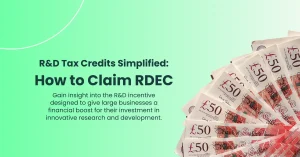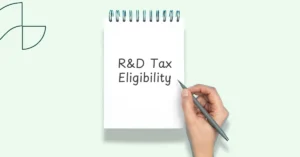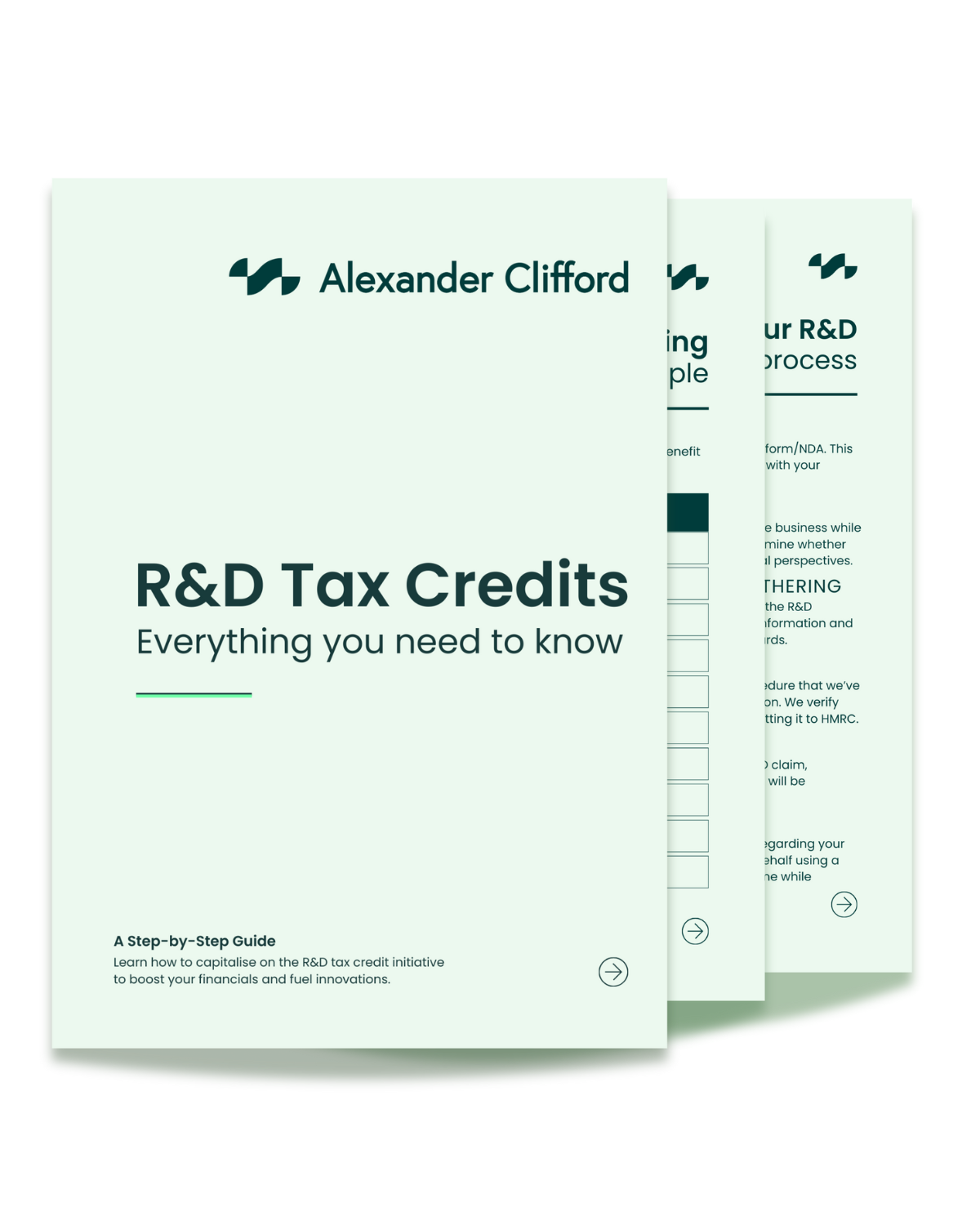Clean Energy Grants Meet R&D Tax Credits: What to Know

In the race to develop greener energy sources, funding can quickly become an issue. But combining clean energy grants with R&D tax credits can provide substantial financial relief for innovative businesses in the UK. Today we explore the top green energy grants, how R&D tax relief supports sustainable innovation, and how to combine the two for maximum efficiency.
With net zero targets fast approaching, there’s a race among businesses to implement sustainable energy sources. As clean energy grants support businesses in these efforts, R&D tax credits provide further financial backing to the innovation behind sustainable energy.
This is how businesses can leverage these funding options to create new opportunities for sustainable innovation.
The Role of Clean Energy Grants
The overall purpose of clean energy grants is to provide financial assistance to businesses allowing them to improve sustainable practices and even install renewable energy technology. These technologies can include:
- Electric vehicle (EV) chargepoints
- Solar panels
- Ice powered cooling systems
In the UK, much of this low carbon economy support is funded by the government. This is part of their pledge to lower greenhouse gas emissions to net zero by the year 2050.
Book a quick call back
Examples of Funded Projects
Government clean energy funding may also be allocated toward funded projects such as:
- Community wind farms
- Energy efficient infrastructure upgrades
- Green heat networks
Not only do these funded projects have a tendency to have a positive environmental impact, but they can also have an economic impact with an increase in job creation and manufacturing – proving that the shift in energy preferences doesn’t require a sacrifice to the economy.
Top Clean Energy Grants for UK Businesses
There are a variety of funding options for businesses seeking clean energy grants in the UK, ranging from local council initiatives to public and private partnerships.
We want to put a particular emphasis on the government’s commitment to clean energy however, so these are the top clean energy grants as provided by the government:
- Industrial Energy Transformation Fund (IETF)
Provides funding for businesses in England, Wales and Northern Ireland, encouraging them to adopt sustainable energy practices and low carbon technologies - Smart Export Guarantee
Pays businesses for every unit of energy in which they feed back to the grid from their own renewable energy resources - Green Gas Support Scheme
Provides funding for businesses investing in biomethane injections which increase green gas within the national grid
For businesses looking to carry clean energy to new levels, there are a number of government backed grants that assist in providing sustainable innovation support. These grants can include:
- Net Zero Innovation Portfolio (NZIP)
Provides funding for innovations in low carbon technology and systems - Innovate UK Smart Grant(s)
Presents financial support for clean energy technology projects - R&D Tax Credit Relief
Offsets a portion of research and development costs for scientific and technological innovation
How R&D Tax Credits Support Sustainable Innovation
Introduced by the British government to incentivise innovation in businesses, the R&D tax credit relief is dedicated to the advancement in science and technology.
Sustainable innovation can quickly become quite costly, but R&D tax credits work by providing up to a 33% return on eligible costs, which can vastly alleviate the financial burden of research and development.
R&D Tax Credit Eligibility
In order to qualify for R&D tax credits, it’s important to remember that projects must align with HMRC’s definition of research and development. That is to say that a research and development must aim to overcome a scientific or technological uncertainty that cannot be otherwise solved by an expert in the field.
Additionally, the project should seek to produce a new or improved:
- Software
- Service
- Product
- Process
Those looking to make an R&D tax credit claim should also take into account the eligible expenditure that can include:
- Staff costs (including PAYE, NIC and pension contributions)
- Software costs (used directly in research and development)
- Consumable items (such as materials and some utilities)
Combining Clean Energy Grants with R&D Tax Credits
The key to successfully combining clean energy grants with R&D tax credits is to organise funding ahead of time. This is because some expenses cannot be covered by both a grant and the R&D relief simultaneously.
To successfully align these funding opportunities, it’s important to understand the eligible R&D expenditure. This will allow any grant funding to be allocated elsewhere, ultimately maximising the financial benefits while driving to achieve sustainability goals.
R&D Claim Support with Alexander Clifford
As one of the UK’s leading R&D tax credit advisories, the team at Alexander Clifford take pride in their ability to support the future of sustainable innovation.
Using their meticulous attention to detail, our specialists work hard to identify eligible activities and expenditures that may often be overlooked, allowing our clients to maximise their claims. So far, this has allowed our clients to receive over £83 million in R&D tax credit relief.
That’s what makes Alexander Clifford your trusted choice for R&D tax credits.
Get a head start on your R&D claim by entering your details below, or click here to book an appointment with one of our specialists.
Get a decision on your R&D eligibility from a qualified specialist in 15 minutes.







